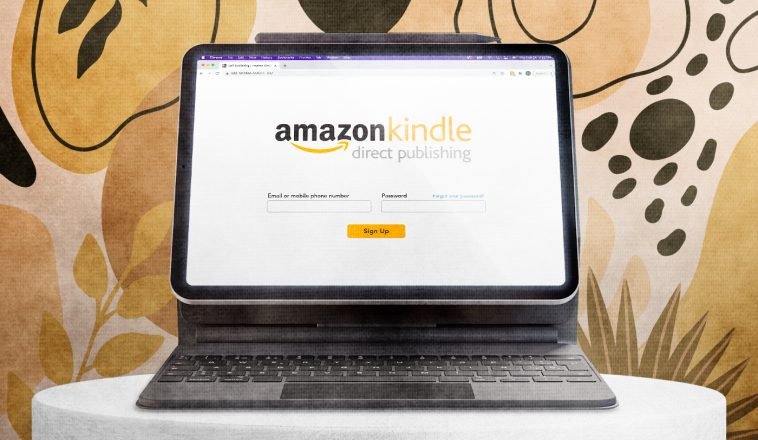Introduction.
Selling products online has become a huge deal over the past decade, with Amazon standing out as one of the top platforms to help sellers reach millions of customers.
If you’re thinking about getting into the game, you’ve probably heard about Amazon FBA (Fulfillment by Amazon).
It’s one of the most popular ways for people to sell products without handling every detail themselves, but like anything, it comes with its ups and downs.
In this article, I’ll break down the pros and cons of using Amazon FBA, so you can make an informed decision before diving in.
What is Amazon FBA?
Let’s quickly go over what FBA is. When you sign up for Amazon FBA, you send your products to Amazon’s fulfilment centres where they store and handle everything from storing the inventory to picking, packing, and shipping your orders. Amazon also takes care of customer service and returns for you.
This means you can focus more on marketing and growing your business while Amazon handles the logistics.
Sounds good, right? But like any business decision, there are both advantages and disadvantages that you need to consider before jumping in.
Pros of Selling with Amazon FBA
1. Prime Eligibility
One of the biggest advantages of using FBA is that your products become eligible for Amazon Prime.
This is a game-changer because millions of Amazon Prime members get free, fast shipping on items, and they love using their membership benefits. If your product is eligible for Prime, you could see a significant increase in sales.
According to a survey by Consumer Intelligence Research Partners (CIRP), 71% of Amazon customers are Prime members. This gives you access to a huge pool of loyal shoppers who are more likely to buy from you.
2. Less Hassle with Shipping and Returns
Shipping and returns can be a massive headache for sellers. With FBA, Amazon takes care of both. They’ll pick and pack the orders, ship them out quickly, and even deal with returns on your behalf.
This means you don’t need to worry about finding a reliable shipping service or dealing with customer complaints about missing packages. Amazon’s streamlined process makes it easier for you to focus on other aspects of your business.
3. Scalability
One of the main reasons people choose Amazon FBA is that it makes scaling a business easier. As your sales increase, Amazon can handle the growth by managing more inventory and shipping more products.
You don’t need to worry about hiring more staff or managing a larger warehouse. Amazon’s vast infrastructure allows you to scale up without the typical headaches.
4. Increased Visibility
Selling on Amazon already puts you in front of millions of potential customers, but using FBA gives your listings a competitive edge.
FBA products tend to rank higher in search results, and they often get featured in Amazon’s “Buy Box.” This can lead to more sales since the Buy Box is the section where most customers click to buy items.
5. Customer Service Support
Amazon takes care of customer service for FBA sellers, including responding to customer inquiries and resolving issues like refunds or damaged items.
This can save you a lot of time and stress, especially if you’re new to e-commerce or don’t want to handle customer complaints yourself.
Since Amazon’s customer service team is highly trained, you’re also likely to get more positive reviews, which helps build trust with customers.
Cons of Selling with Amazon FBA
1. FBA Fees
The downside to Amazon FBA is the fees. While Amazon takes care of a lot of work, they do charge for their services.
These fees can vary depending on the size and weight of your product, but they can add up quickly. Amazon’s fees include storage fees, fulfilment fees (for picking, packing, and shipping), and referral fees (a percentage of the selling price).
It’s important to calculate these fees carefully to make sure you’re still making a profit after all costs are taken into account.
2. Less Control Over Your Inventory
When you send your products to Amazon, you’re banding over control of your inventory. Amazon’s warehouses can get crowded, especially during peak shopping seasons like Christmas, which means your products might end up sitting in storage for longer than you’d like.
This can lead to additional storage fees or, in extreme cases, your products might even get returned to you.
Another issue is that you’re at the mercy of Amazon’s rules. If they make changes to their policies or fees, it can directly affect your business, and you might have no say in the matter.
3. Competition with Other Sellers
Amazon is home to millions of sellers, which means you’re not the only one selling a particular product.
You might find that there are hundreds or even thousands of other sellers offering the same or similar products.
Competing with that many sellers can be tough, and it’s harder to stand out. If you don’t invest in marketing and product differentiation, you might get lost in the crowd.
4. Dependence on Amazon
While Amazon gives you access to millions of customers, it also means your business is dependent on them.
If something goes wrong with Amazon’s platform—whether it’s technical issues, account suspension, or a policy change—it can have a huge impact on your business.
You also have to follow Amazon’s rules, which can sometimes feel restrictive or unfair. Many sellers have been banned for minor infractions, and that can result in lost income.
5. Long-Term Storage Fees
If your products don’t sell as quickly as you expected, you’ll face long-term storage fees. These fees are significantly higher than regular storage fees and can quickly eat into your profits.
Amazon typically charges these fees if your inventory has been stored in their warehouse for six months or longer, which could be a problem for products that don’t sell right away. This is something to watch out for if your products have a slow sales cycle.
How to Decide If Amazon FBA Is Right for You
Selling with Amazon FBA is a great option for many sellers, but it’s not for everyone. If you’re just starting and don’t want to worry about managing your warehouse or dealing with shipping, it’s a solid choice.
On the other hand, if you’re someone who prefers to have full control over your business and doesn’t mind handling the logistics yourself, FBA might not be the right fit.
The key to deciding whether Amazon FBA is right for you lies in understanding your business goals and weighing the pros and cons.
Consider your margins, your ability to manage inventory, and whether you’re comfortable with Amazon’s fees and policies.
If you do decide to go for it, make sure you do thorough research to ensure your products are priced competitively and that you’re prepared for the costs involved.
FAQs
Q: How much does Amazon FBA cost?
A: Amazon FBA fees depend on several factors, including the size and weight of your product, storage fees, and referral fees.
On average, FBA fulfilment fees range from $2.50 to $5.00 per item. Storage fees are typically between $0.75 and $2.40 per cubic foot, depending on the time of year.
Q: Can I use Amazon FBA if I already have my inventory?
A: Yes, you can send your existing inventory to Amazon’s fulfilment centres and they’ll handle the storage and shipping for you. However, you’ll need to make sure your inventory is ready for Amazon’s guidelines.
Q: Will my products be automatically eligible for Prime shipping with FBA?
A: Yes, once you enrol in FBA, your products become eligible for Prime shipping, which can help boost your sales.
Q: Can I use FBA with international sales?
A: Yes, Amazon allows you to sell internationally through FBA. You can choose to ship your products to Amazon fulfilment centers other countries, making it easier to expand your business globally.
Conclusion.
In the end, deciding whether to sell with Amazon FBA depends on what you want from your business.
It’s a fantastic option for people who want to automate a lot of the work and take advantage of Amazon’s massive customer base.
However, it does come with fees, competition, and a lack of control over your inventory.
So, what do you think? Is the convenience and potential growth of Amazon FBA worth the trade-offs, or would you prefer a different approach to selling online?





GIPHY App Key not set. Please check settings